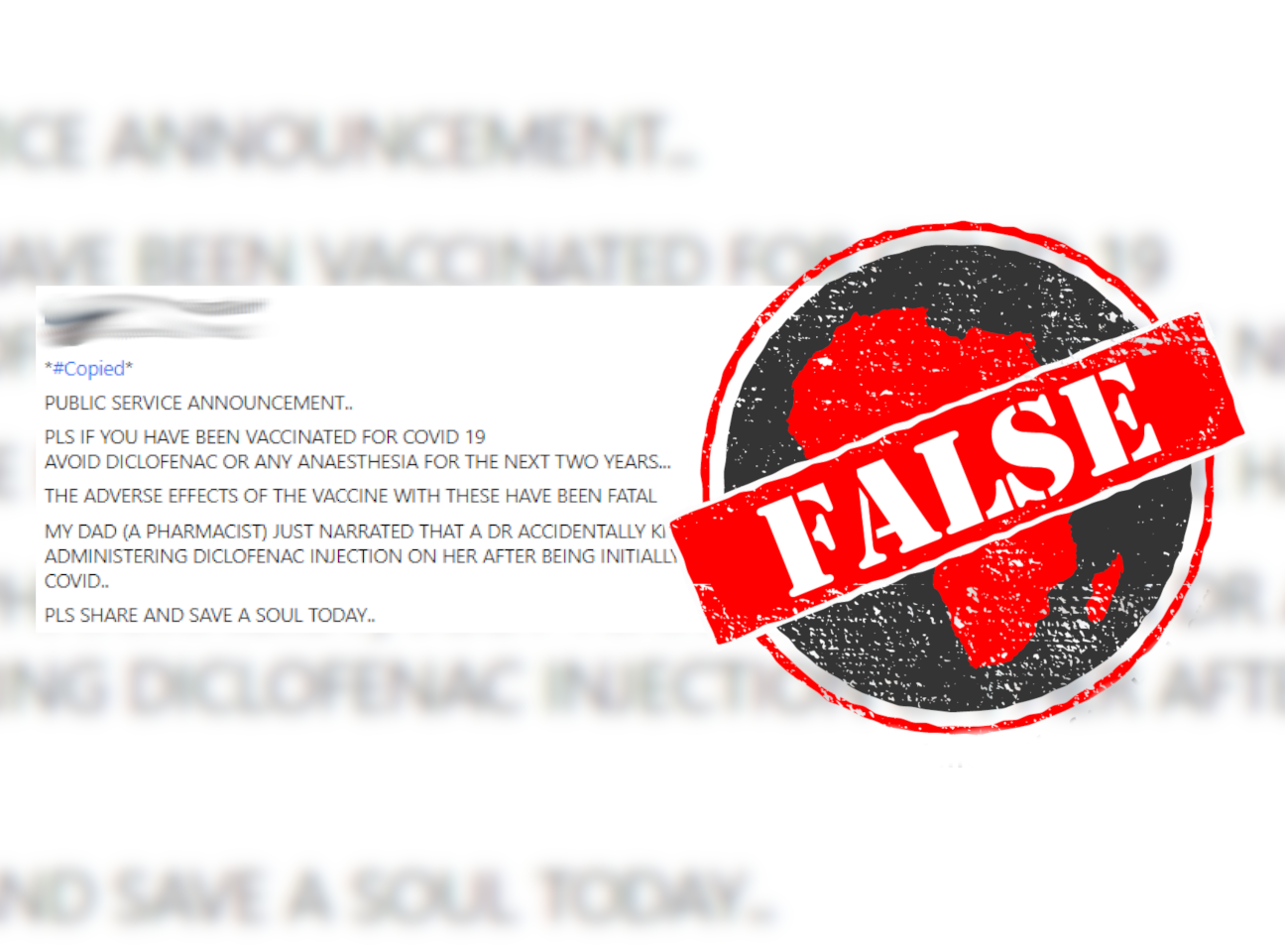An all-caps “public service announcement” circulating on Facebook and WhatsApp claims you must “avoid diclofenac or any anaesthesia” for two years after getting the Covid vaccine.
It says the “adverse effects of the vaccine with these have been fatal”.
“My dad (a pharmacist) just narrated that a Dr accidentally killed his own wife by administering Diclofenac injection on her after being initially vaccinated for Covid,” it adds.
Anaesthesia is taken from the Latin for “absence of sensation”. Anaesthetics are drugs that prevent pain and discomfort, and can be used to make people sleep, during medical tests and surgery.
According to the UK National Health Service, diclofenac is a medicine used to treat pain and aches. It is a non-steroidal anti-inflammatory drug, like aspirin and ibuprofen. Diclofenac’s common side effects include mild rash, stomach ache, dizziness and nausea.
But would it be fatal to use anaesthetics or diclofenac for up to two years after getting the Covid jab?

Expert says claim is false
The World Health Organization says common side effects of Covid vaccines include pain at the injection site, fever, headache and muscle pains. These symptoms are signs that the body is building protection against the disease.
The US Centers for Disease Control says non-steroidal anti-inflammatory drugs can be used to treat the symptoms of vaccination. But it warns against using these medicines before vaccination as a way of avoiding the symptoms.
Edomwonyi Nosakhare, a professor of anaesthesia at the University of Benin in Nigeria’s Edo state, told Africa Check that the claim was false. The professor added that there was no medical basis for avoiding these drugs after Covid vaccination.
Republish our content for free
For publishers: what to do if your post is rated false
A fact-checker has rated your Facebook or Instagram post as “false”, “altered”, “partly false” or “missing context”. This could have serious consequences. What do you do?
Click on our guide for the steps you should follow.
Publishers guideAfrica Check teams up with Facebook
Africa Check is a partner in Meta's third-party fact-checking programme to help stop the spread of false information on social media.
The content we rate as “false” will be downgraded on Facebook and Instagram. This means fewer people will see it.
You can also help identify false information on Facebook. This guide explains how.


Add new comment